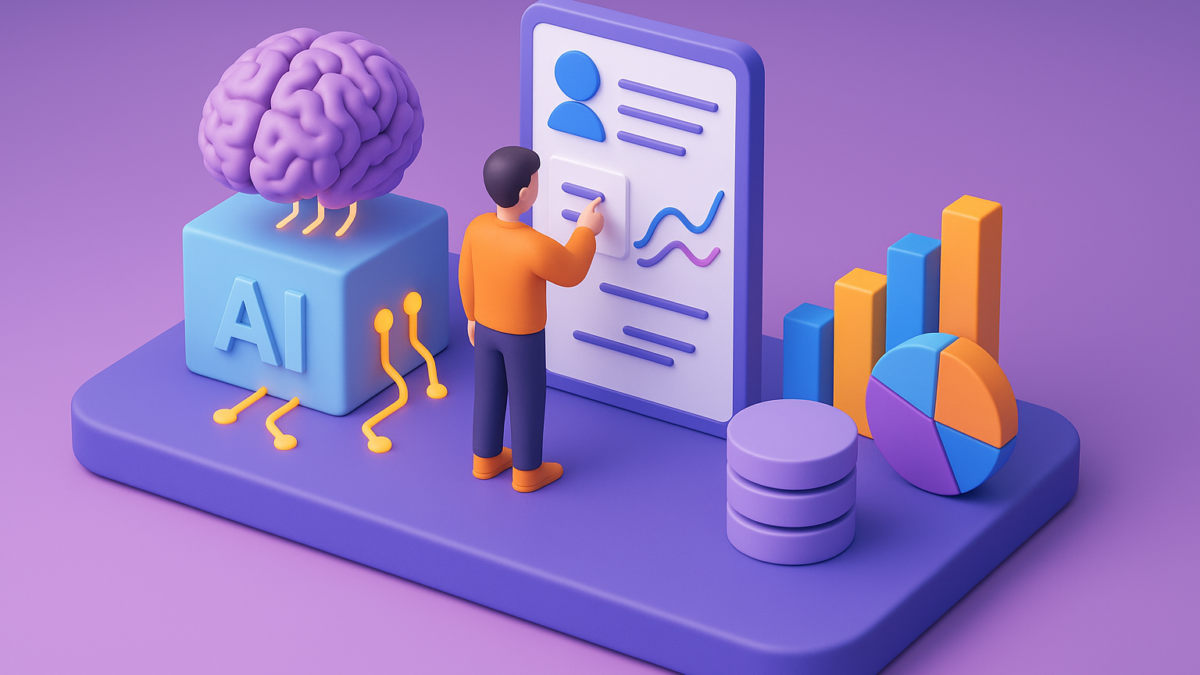The Future of Martech in 2025: AI, Personalization, and Data-Driven Marketing
Marketing technology (Martech) is evolving at lightning speed. By 2025, businesses are leveraging AI, personalization, and data-driven strategies to deliver smarter campaigns, optimize lead generation, and enhance customer engagement.
This article explores the future of Martech, highlighting key trends, practical applications, and how companies can gain a competitive edge in the ever-changing marketing landscape.
1. AI-Powered Marketing: Smarter Campaigns
Artificial intelligence is now the backbone of modern marketing operations.
Applications in Martech:
- Predictive Analytics: Forecast customer behavior and campaign outcomes.
- Automated Content Generation: AI tools create blogs, emails, and social posts.
- Customer Segmentation: AI identifies high-value leads and target audiences.
- Chatbots & Virtual Assistants: Enhance engagement and customer support.
Example: Brands using AI-driven tools can automatically tailor email campaigns to individual preferences, increasing open rates and conversions.
2. Hyper-Personalization: Tailoring the Customer Experience
In 2025, personalized marketing is no longer optional. Customers expect content, offers, and experiences tailored to their interests.
Key Strategies:
- Dynamic Website Content: Show products and services based on browsing behavior.
- AI-Driven Recommendations: Suggest products, content, or solutions in real-time.
- Behavioral Email Campaigns: Send targeted emails triggered by customer actions.
Impact: Personalized campaigns increase engagement rates by 20–30%, according to recent industry reports.
3. Data-Driven Decision Making
Martech relies heavily on data analytics to optimize performance.
Tools & Techniques:
- Customer Data Platforms (CDPs): Unify customer data from multiple sources.
- Advanced Analytics: Track campaigns, predict trends, and optimize ROI.
- Real-Time Dashboards: Visualize KPIs and adapt strategies quickly.
Example: A B2B company uses CDPs and predictive analytics to identify leads most likely to convert, improving sales efficiency.
4. Omnichannel Marketing: Reaching Customers Everywhere
Modern Martech focuses on consistent experiences across multiple channels:
- Social Media & Paid Ads: Automated optimization for maximum engagement.
- Email & SMS Campaigns: Integrated messaging to reach prospects in real-time.
- Website & Mobile Apps: Personalized content and notifications.
- Offline Integration: Linking in-store experiences with digital campaigns.
Benefit: Omnichannel strategies improve brand recall and enhance the customer journey across touchpoints.
5. Marketing Automation: Efficiency at Scale
Automation is critical for scaling marketing efforts without increasing manual workload.
Automation Applications:
- Lead nurturing workflows
- Dynamic content personalization
- AI-powered campaign optimization
- Social media scheduling and monitoring
Pro Tip: Combining AI with automation ensures campaigns are adaptive, responsive, and data-driven, saving time and boosting results.
6. Future Trends in Martech
Looking ahead, Martech in 2025 will focus on:
- Generative AI: Creating unique marketing content at scale.
- Voice & Visual Search: Optimizing campaigns for AI-driven searches.
- Predictive Customer Engagement: Anticipating needs before customers act.
- Privacy-First Marketing: Complying with GDPR, CCPA, and other regulations while delivering personalized experiences.
Conclusion
Martech in 2025 is defined by AI, personalization, automation, and data-driven insights. Companies that embrace these innovations will not only enhance customer engagement but also maximize ROI and stay ahead in the competitive digital landscape.
Call-to-Action (CTA)
Amplify your marketing insights and reach a global audience with iTMunch’s B2B Content Syndication Services.
Distribute your Martech expertise across 1,500+ platforms, engaging over 1 million professionals worldwide.
Start syndicating smarter and grow your brand visibility today!





